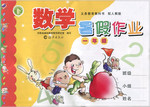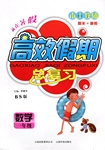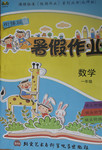题目内容
He took away ________ he saw in the office.
- A.no matter what
- B.whatever
- C.no matter whatever
- D.whichever

 暑假作业海燕出版社系列答案
暑假作业海燕出版社系列答案 本土教辅赢在暑假高效假期总复习云南科技出版社系列答案
本土教辅赢在暑假高效假期总复习云南科技出版社系列答案 暑假作业北京艺术与科学电子出版社系列答案
暑假作业北京艺术与科学电子出版社系列答案After giving a talk at a high school, I was asked to pay a visit to a special student. An illness had kept the boy home, but he had expressed an interest in meeting me. I was told it would mean a great deal to him, so I agreed.
During the nine-mile drive to his home, I found out something about Matthew. He had muscular dystrophy (肌肉萎缩症). When he was born, the doctor told his parents that he would not live to five, and then they were told he would not make it to ten. Now he was thirteen. He wanted to meet me because I was a gold-medal power lifter, and I knew about overcoming obstacles and going for my dreams.
I spent over an hour talking to Matthew. Never once did he complain or ask, “Why me?” He spoke about winning and succeeding and going for his dreams. Obviously, he knew what he was talking about. He didn’t mention that his classmates had made fun of him because he was different. He just talked about his hopes for the future, and how one day he wanted to lift weights with me. When we had finished talking, I went to my briefcase and pulled out the first gold medal I had won and put it around his neck. I told him he was more of a winner and knew more about success and overcoming obstacles than I ever would. He looked at it for a moment, then took it off and handed it back to me. He said, “You are a champion. You earned that medal. Someday when I get to the Olympics and win my own medal, I will show it to you.”
Last summer I received a letter from Matthew’s parents telling me that Matthew had passed away. They wanted me to have a letter he had written to me a few days before:
Dear Dick,
My mum said I should send you a thank-you letter for the picture you sent me. I also want to let you know that the doctors tell me that I don’t have long to live any more, but I still smile as much as I can.
I told you someday that I would go to the Olympics and win a gold medal, but I know now I will never get to do that. However, I know I’m a champion, and God knows that too. When I get to Heaven, God will give me my medal and when you get there, I will show it to you. Thank you for loving me.
Your friend,
Matthew
1.The boy looked forward to meeting the author because _________.
|
A.he was also good at weight lifting |
|
B.he wanted to get to the Olympics and win a medal |
|
C.he was one of the author’s fans |
|
D.he admired the author very much |
2.The underlined sentence in the third paragraph probably means that _______.
|
A.the boy never complained about how unlucky he was to have this disease |
|
B.the boy never complained about not being able to go to school |
|
C.the boy never complained why the author had never come to see him before |
|
D.the boy never complained about not getting a medal |
3.From the passage we learn that _________.
|
A.Matthew was an athlete |
|
B.Matthew was an optimistic and determined boy |
|
C.The author used to have the same disease as Matthew had |
|
D.Matthew became a champion before he died |
4.Matthew didn’t accept the author’s medal because _________.
|
A.he thought it was too expensive |
|
B.he was sure that he could win one in the future |
|
C.he thought it was of no use to him as he would die soon |
|
D.he would not be pitied by others |
5.What would be the best title for this passage?
|
A.A sick boy. |
B.A special friend. |
|
C.A real champion. |
D.A famous athlete. |
After giving a talk at a high school, I was asked to pay a visit to a special student. An illness had kept the boy home, but he had expressed an interest in meeting me. I was told it would mean a great deal to him, so I agreed.
During the nine-mile drive to his home, I found out something about Matthew. He had muscular dystrophy (肌肉萎缩症). When he was born, the doctor told his parents that he would not live to five, and then they were told he would not make it to ten. Now he was thirteen. He wanted to meet me because I was a gold-medal power lifter, and I knew about overcoming obstacles and going for my dreams.
I spent over an hour talking to Matthew. Never once did he complain or ask, “Why me?” He spoke about winning and succeeding and going for his dreams. Obviously, he knew what he was talking about. He didn’t mention that his classmates had made fun of him because he was different. He just talked about his hopes for the future, and how one day he wanted to lift weights with me. When we had finished talking, I went to my briefcase and pulled out the first gold medal I had won and put it around his neck. I told him he was more of a winner and knew more about success and overcoming obstacles than I ever would. He looked at it for a moment, then took it off and handed it back to me. He said, “You are a champion. You earned that medal. Someday when I get to the Olympics and win my own medal, I will show it to you.”
Last summer I received a letter from Matthew’s parents telling me that Matthew had passed away. They wanted me to have a letter he had written to me a few days before:
Dear Dick,
My mum said I should send you a thank-you letter for the picture you sent me. I also want to let you know that the doctors tell me that I don’t have long to live any more, but I still smile as much as I can.
I told you someday that I would go to the Olympics and win a gold medal, but I know now I will never get to do that. However, I know I’m a champion, and God knows that too. When I get to Heaven, God will give me my medal and when you get there, I will show it to you. Thank you for loving me.
Your friend,
Matthew
1.The boy looked forward to meeting the author because .
|
A.he was also good at weight lifting |
|
B.he wanted to get to the Olympics and win a medal |
|
C.he was one of the author’s fans |
|
D.he admired the author very much |
2.The underlined sentence in the third paragraph probably means that_______.
|
A.the boy never complained about how unlucky he was to have this disease |
|
B.the boy never complained about not being able to go to school |
|
C.the boy never complained why the author had never come to see him before |
|
D.the boy never complained about not getting a medal |
3.Matthew didn’t accepted the author’s medal because .
|
A.he thought it was too expensive |
|
B.he was sure that he could win one in the future |
|
C.he thought it was of no use to him as he would die soon |
|
D.he would not be pitied by others |
4.What would be the best title for this passage?
|
A.A sick boy. |
B.A special friend |
C.A real champion. |
D.A famous athlete. |